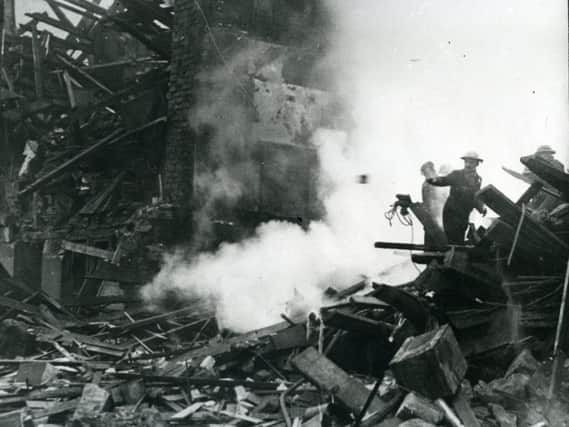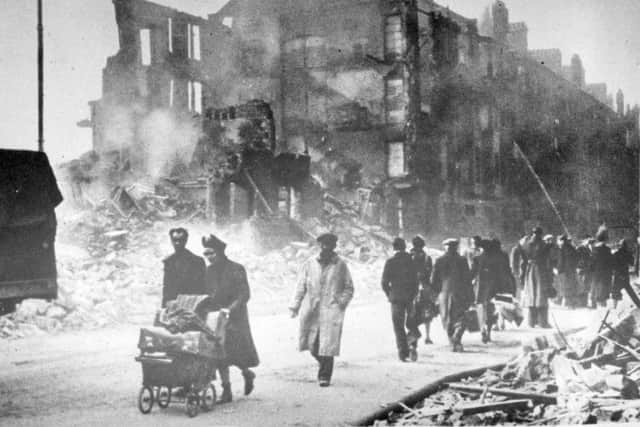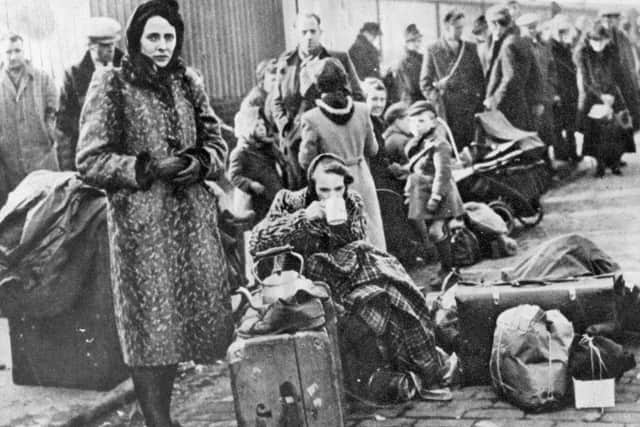Calls to remember the boys who died trying to save lives during the Clydebank Blitz


Now, calls have been made for the 'message boys' of Clydebank, who served with the Glasgow Auxiliary Fire Service, to get a permanent memorial in recognition of their service.
Between 80 and 90 boys are known to have served during the Clydebank Blitz of March 1941, with five killed during their volunteer duties. Most were aged between 14 and 15, but some could have been younger.


Advertisement
Hide AdAdvertisement
Hide AdJohn Macleod, author of River of Fire, The Clydebank Blitz, said it was time to remember the boys who raised the alarm over burning houses and trapped townspeople by using bicycles, and sometimes motorcycles, to get the message out as telecoms systems failed.
Calls for the memorial comes as a new BBC Alba docudrama, Kids of Courage, explores the critical role of the messengers during the German onslaught.
Mr Macleod said: "There should be some sort of monument to the messenger boys before they have all gone.


"They were out there during the bombing and their role was vital. I think it is a matter of great regret that they have been completely forgotten."
More that 200 German bombers attacked Clydebank over two nights to destroy naval, shipbuilding and munitions targets in and around the town.
Fires at Singer's timber yards, Yoker Distillery and Old Kilpatrick's oil depot resulted in the greatest damage to industry.
But it was ordinary people and their homes that bore the brunt of the devastation. Of 12,000 houses, 4,000 were completely destroyed. Only seven properties were undamaged.
The official death toll records 528 casualties but it has been argued this is vastly under estimated.
Advertisement
Hide AdAdvertisement
Hide AdMr Macleod suggested Knightswood would be a suitable location for any memorial.
It was here that Neil Leitch, who was just 15 during the Blitz, died carrying a message from Bankhead Primary School, the base for the Auxiliary Fire Service (AFS) station, to Partick Fire Station.
He was blown off his bicycle as he ventured out but, despite suffering bruising and shock, he pressed on to pass his message to First Aid before setting out to return to AFC headquarters.
On his return journey, an oil bomb landed close to the teenager, leaving him with severe burns.
He died soon afterwards with the Glasgow Herald reporting he bore his sufferings with 'the greatest fortitude'," Mr Macleod wrote.
Following his death, Neil Leitch was gazetted by King George VI for his bravery and devotion to duty.
The author described the messengers as "gutsy scholars, young enough to abound in energy and too young, perhaps, to be paralysed by imagination and terror."
Most were recruited from the Boys Brigade with the volunteers likely to have been from middle class homes, given the boys came equipped with their own bikes, Mr Macleod added.
Advertisement
Hide AdAdvertisement
Hide AdIt is likely parental permission was not technically required given the school leaving age was then 14.
However, Mr Macleod said parents were likely to support their sons taking up such a role "given the culture of everyone mucking in."
Another messenger boy who lost his life was Robert M MacFarlane, who died on the town's Broom Drive in the aftermath of a bomb drop, according to accounts.
A wreath was laid for the five messenger boys who died during the Clydebank Blitz at Dalbeath Cemetery in 2015.
Margaret Cameron, channel editor of BBC Alba, agreed a memorial for the Message Boys was appropriate.
She said: "These were very young heroes of World War Two. Clearly, the message boys were very young kids who were running very high risks. Telling their story seemed to be a way of highlighting the courage of the younger generation during the war, which is something you don't often hear about."
Kids of Courage, or Gaisgich Oga an Darna Cogaidh, will screen tonight (Tuesday, October 15) on BBC Alba at 8.30pm and will be available thereafter on BBC iPlayer.